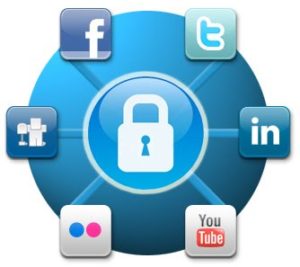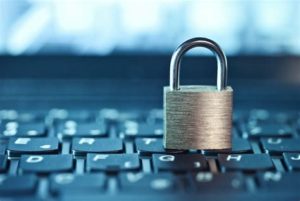How To Improve Your Internet Privacy
Protect Your Internet Privacy
The fundamentals of data privacy protection are in constant need of re-thinking. There is no silver bullet, where one single thing will guard you and your personal information from all the risks that lurk online. Think about protecting your internet privacy in layers, the more steps required to capture your assets, the more protected your online privacy becomes. Laws and technology can change quickly, and portions of your internet privacy strategy can become out of date within frequent reviews. Knowledge is power, the more you begin to understand what digital surveillance is and how your personal information is collected online, the better you begin to understand how you can fight it.
This will not come as a surprise to most people, but interest privacy is hard, really hard. Daily reports of newly hacked databases, platforms, retailers and trusted service providers see the constant barrage of black hats, hackers and less than scrupulous state sponsored bad actors all after your information. The larger and more complex the systems, the more engaged you are online with your data, the more difficult it is to plug all the security holes and make them secure and trustworthy. It is up to each of us to establish a comfort level for personal online privacy and how much data we are willing or not willing to freely share.
Internet Privacy Is Under Attack
 The daily headlines on internet privacy breeches shows us that the risks of weak digital security are all around us. We’ve heard about phishing attacks by foreign governments aimed at undermining our democracy and ransomware attacks on hospitals. We’ve seen nation-state level attacks on corporations like Sony and on sensitive government employee databases like the one maintained by the federal Office of Personnel Management. Corporate data breaches like the ones suffered by Equifax, Target and Marriott have affected tens of millions of users. Countless others have suffered from identity theft, malware, and more recently, spouseware—malware used by domestic abusers. Meanwhile, we’ve seen more research proving how easy it is to break into many U.S. voting systems. The attacks and undermining strategies are different in each of these, but the underlying problem is the same: Our digital systems are not secure enough, and our current security techniques are not up to the task. So what can you do to protect yourself, your online privacy, and your most vital data?
The daily headlines on internet privacy breeches shows us that the risks of weak digital security are all around us. We’ve heard about phishing attacks by foreign governments aimed at undermining our democracy and ransomware attacks on hospitals. We’ve seen nation-state level attacks on corporations like Sony and on sensitive government employee databases like the one maintained by the federal Office of Personnel Management. Corporate data breaches like the ones suffered by Equifax, Target and Marriott have affected tens of millions of users. Countless others have suffered from identity theft, malware, and more recently, spouseware—malware used by domestic abusers. Meanwhile, we’ve seen more research proving how easy it is to break into many U.S. voting systems. The attacks and undermining strategies are different in each of these, but the underlying problem is the same: Our digital systems are not secure enough, and our current security techniques are not up to the task. So what can you do to protect yourself, your online privacy, and your most vital data?

A seasoned digital marketing professional with over 20 years of expertise in digital marketing, search engine optimization, search engine marketing, brand development, conversion optimization, lead generation, web development and data analytics. He is a strategic digital marketing thought leader in a multitude of business verticals including automotive, education, financial services, legal marketing and professional services.



 Personal data is the new gold for cyber criminals. They use it to commit a variety of offenses from identity theft to blackmail, and it’s become a global problem. Law enforcement agencies lack the resources and expertise to tackle the scale of the problem, so it’s down to the individual to understand the risks and take necessary precautions to protect their online privacy.
Personal data is the new gold for cyber criminals. They use it to commit a variety of offenses from identity theft to blackmail, and it’s become a global problem. Law enforcement agencies lack the resources and expertise to tackle the scale of the problem, so it’s down to the individual to understand the risks and take necessary precautions to protect their online privacy.